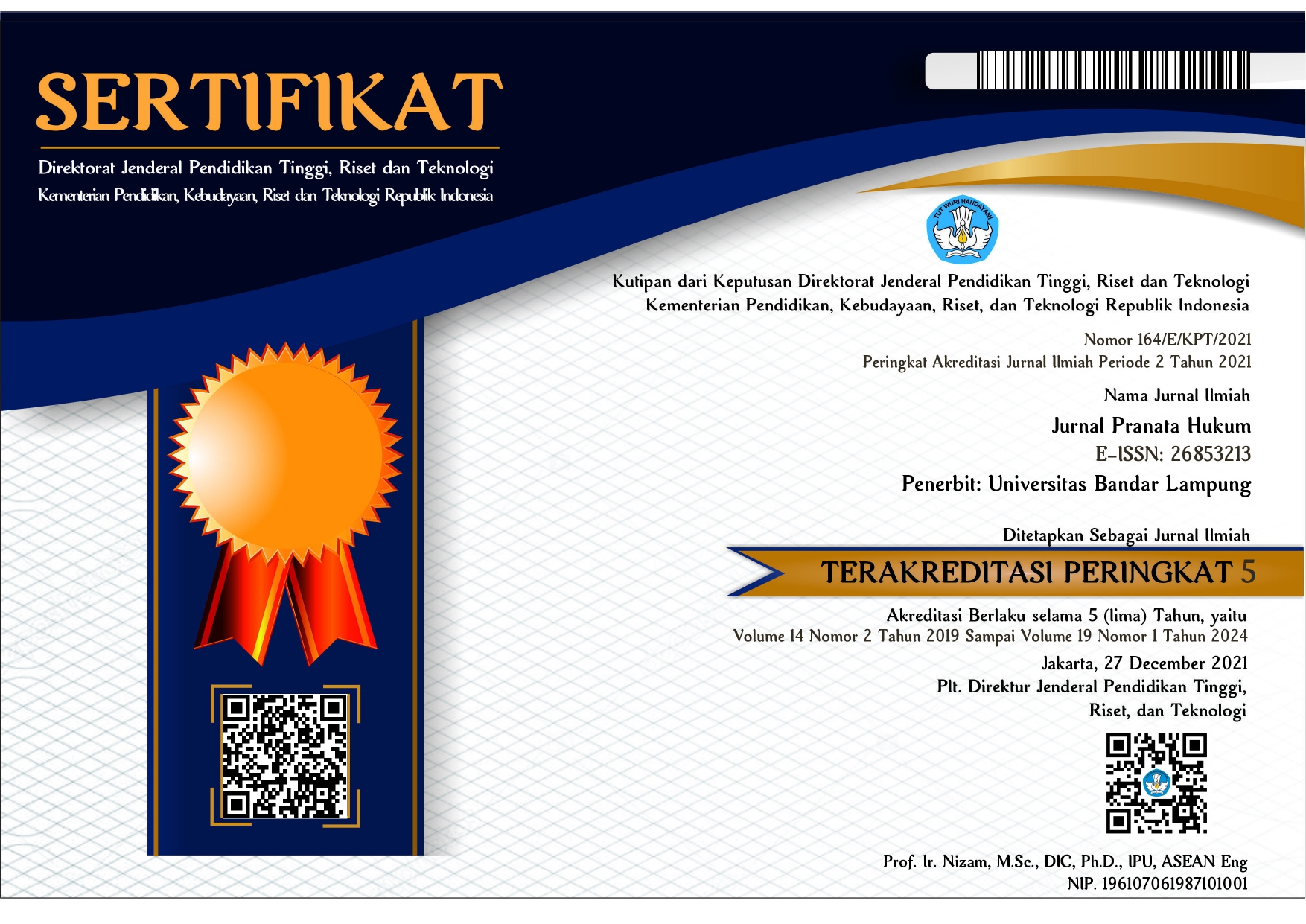EFFECTIVENESS OF CPO OIL EXPORT PROHIBITION POLICY
(CASE STUDY ON COMMUNITIES IN BORDER REGIONS)
DOI:
https://doi.org/10.36448/pranatahukum.v18i1.298Keywords:
Policy, Export Prohibition, Border SocietyAbstract
Policy on the Prohibition of the Export of CPO Oil by the Government with the issuance of a moratorium through Minister of Trade Regulation No. 22 of 2022 on April 28, 2022. This moratorium is a form of government protection that prioritizes the interests of the people over the fulfillment of cooking oil needs for domestic purposes. After almost a month of implementing the policy, the government finally reopened the export of CPO and its derivatives starting May 23, 2022. This policy certainly caused problems, especially in the purchase of fresh fruit bunches (FFB) of palm oil. The purpose of this study is to discuss the impact of the policy of banning the export of CPO and its derivative products to oil palm farmers in the Border. The company's unilateral FFB price fixing, the shift of border oil palm farmers selling their FFB and the shifting of CPO demand to competitors from other countries are the inevitable impacts of the CPO export ban. The research method uses descriptive qualitative. Data was collected by observation and in-depth interviews. Withdrawal of informants is done purposely. The data was analyzed using the Miles and Huberman interactive model, which started with data collection, data reduction, data presentation and drawing conclusions. The results show that the impact of the export ban policy is very large on oil palm farmers and requires oil palm farmers to take steps to sell their palm products to Malaysia
Downloads
Downloads
Published
Issue
Section
License
Copyright (c) 2023 PRANATA HUKUM

This work is licensed under a Creative Commons Attribution-ShareAlike 4.0 International License.
All articles published in the Pranata Journal are licensed under the Creative Commons Attribution-ShareAlike 4.0 International License (CC BY-SA 4.0). This license allows others to share, copy, distribute, adapt, and build upon the work, even for commercial purposes, as long as appropriate credit is given and derivative works are licensed under the same terms.




